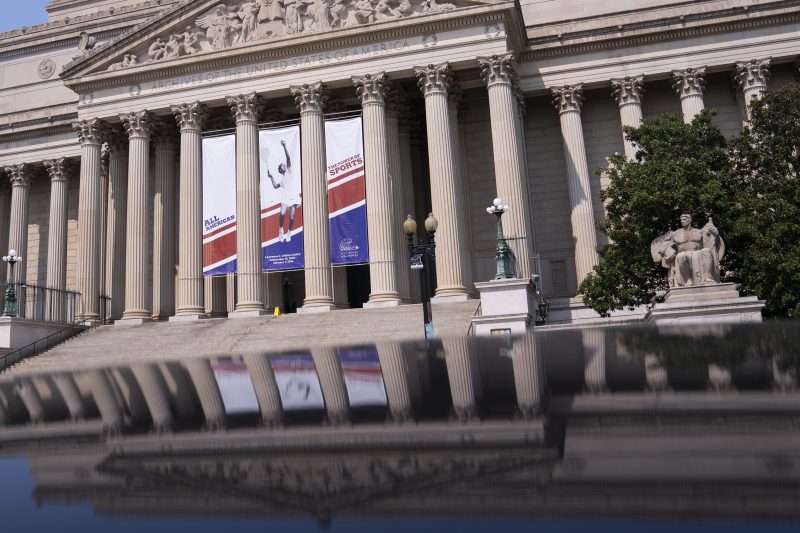
National Archives staff told visitors to hide antiabortion slogans, lawsuit says
Antiabortion advocates hoping to view the Constitution at the National Archives were ordered not to display their slogans during their visit, in violation of their constitutional rights, according to a federal lawsuit filed against the agency this week.
The advocates, who were in the District attending the 50th Annual March for Life last month, allege that a group of security guards at the National Archives and Record Administration’s building told them to hide or remove buttons, hats and clothing that contained messages such as “Life is a HUMAN RIGHT” and “Pro-Love is the New Pro-Life” when they entered the Rotunda, where the Constitution and its Bill of Rights are on display.
A guard “literally told me to take off my pro-life pin as I was standing next to the constitution that literally says Freedom of Speech on it,” a 17-year-old girl was quoted as telling her friend on Snapchat. Fearful of being ejected from the building, the complaint says, the young woman complied.
The teenager — identified in the complaint only by the initials L.R. — had come to D.C. with her mother, identified as Tamara R., to attend the antiabortion march Jan. 20. Both were part of a group of approximately 35 students and parents from an unidentified Catholic school in Michigan who attended the protest and visited the Archives on Constitution Avenue that same day, the complaint says.
The National Archives issued an apology Friday and said officials were still trying to determine what happened.
“Early indications are that our security officers quickly corrected their actions, and from that point forward, all visitors were permitted to enter our facility without needing to remove or cover their attire,” the Archives said in a statement. The statement said the National Archives’ policy is explicit in allowing visitors to enter the building wearing clothing or buttons with “protest language, including religious and political speech.”
The agency declined to comment further, citing the pending litigation.
The lawsuit, filed on behalf of four plaintiffs Wednesday in U.S. District Court for the District of Columbia by attorneys for the American Center for Law and Justice, was first reported Thursday by the Washington Times. It names the Archives and its acting administrator, Debra Steidel Wall, as defendants.
Neither lead attorney Jay Alan Sekulow, who served on former president Donald Trump’s legal team during his first impeachment trial, nor others from the American Center for Law and Justice responded to requests for an interview.
The complaint says antiabortion advocates felt singled out because of their conservative political and religious views. L.R. said that when she went into the Archives’ gift shop, she observed at least three Archives employees confronting other visitors about their antiabortion messages, although she also saw that items such as rainbow-colored gay rights pins and T-shirts were on sale.
By chance, L.R. and members of her Catholic school group visited the Archives at the same time that other antiabortion demonstrators entered the building to view the Constitution and Bill of Rights and ran into similar trouble with security guards, the complaint says.
Wendilee Walpole Lassiter, a Virginia resident who was visiting the Archives with a group of about eight fellow students from the Liberty University School of Law, was allegedly denied admittance unless she removed her black sweatshirt that read, “I AM THE POST-ROE GENERATION: LAW STUDENTS FOR LIFE.”
“I can’t come in here unless I take my sweatshirt off?” she asked, according to the complaint.
“No, you can’t,” a guard allegedly responded. The complaint says another guard told her: “You have to take your shirt off. Your shirt will incite others” and “cause a disturbance.”
Lassiter, too, complied. The complaint says she saw other visitors wearing T-shirts reading “My Body My Choice,” and “Pro-Choice” who appeared not to have been approached by security guards about their own political messages.
The litigation seeks unspecified damages and remedial measures such as training for security to ensure that the agency does not engage in viewpoint discrimination that violates people’s constitutional rights.
